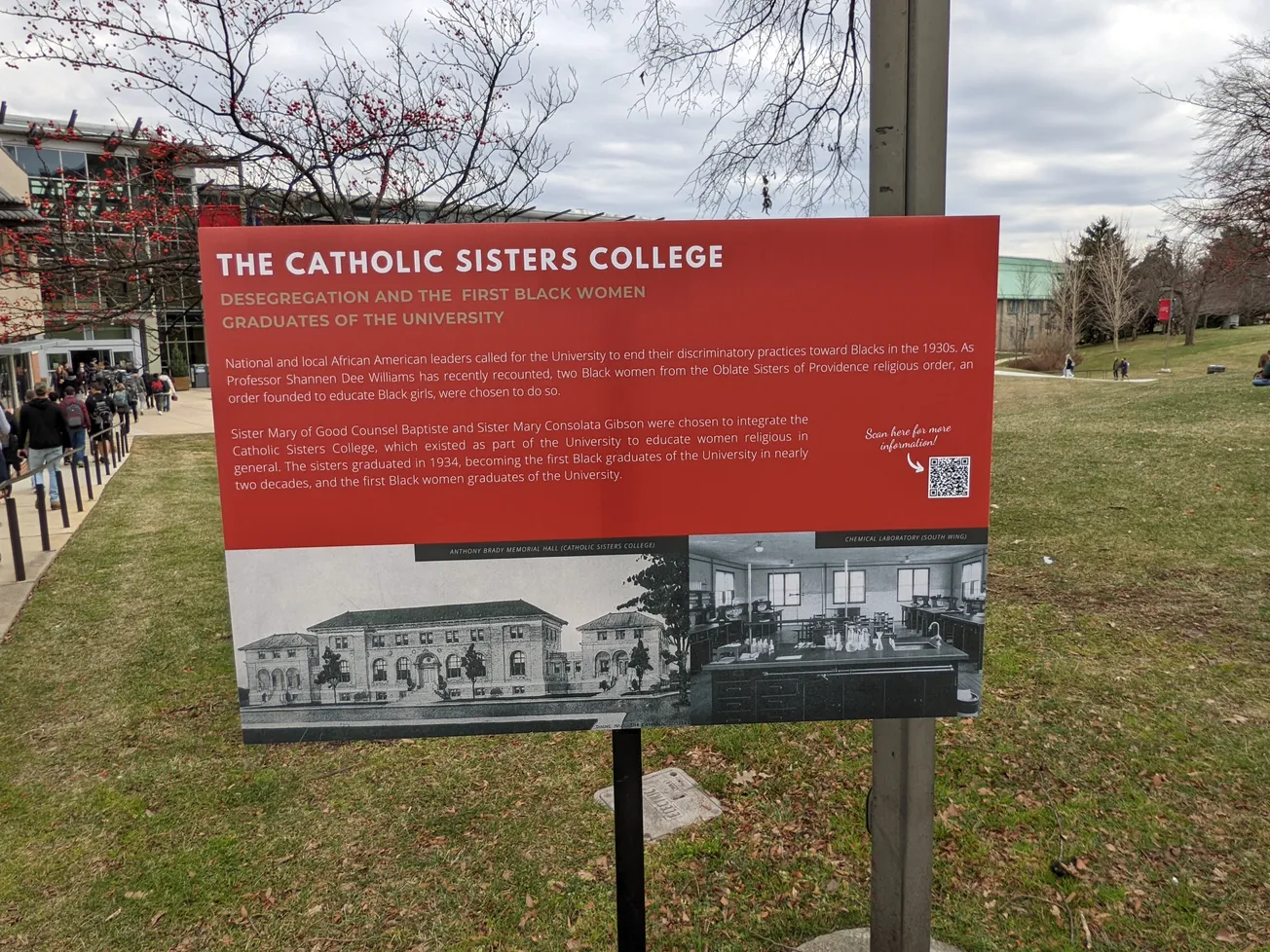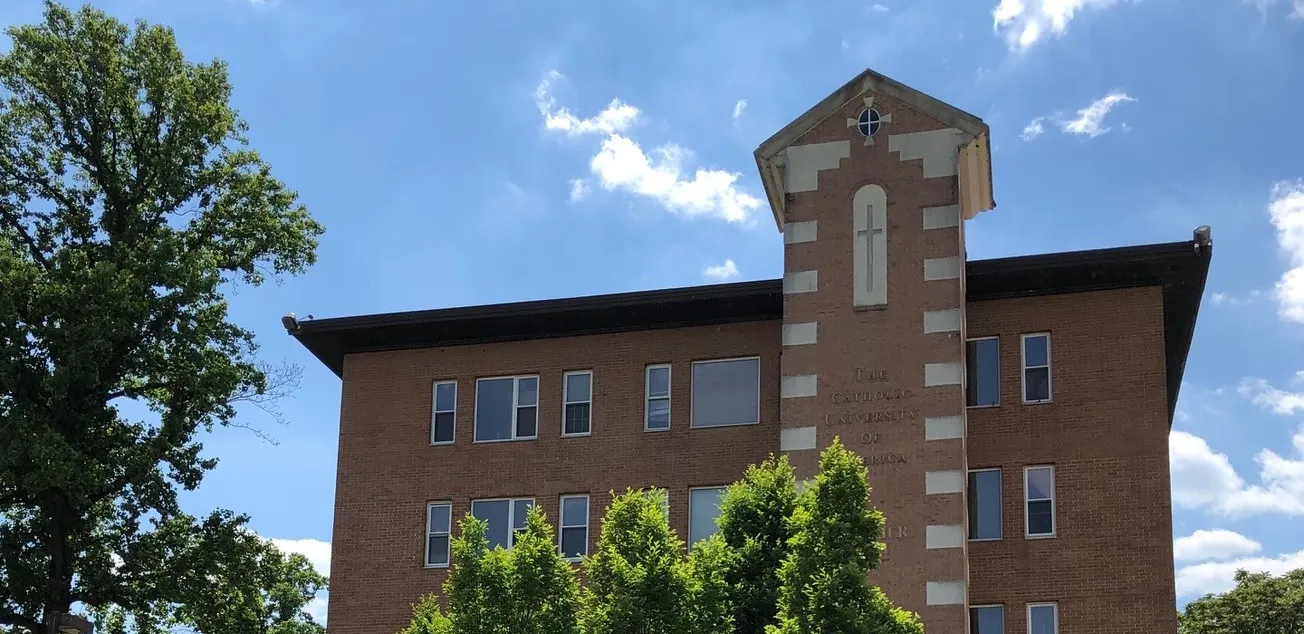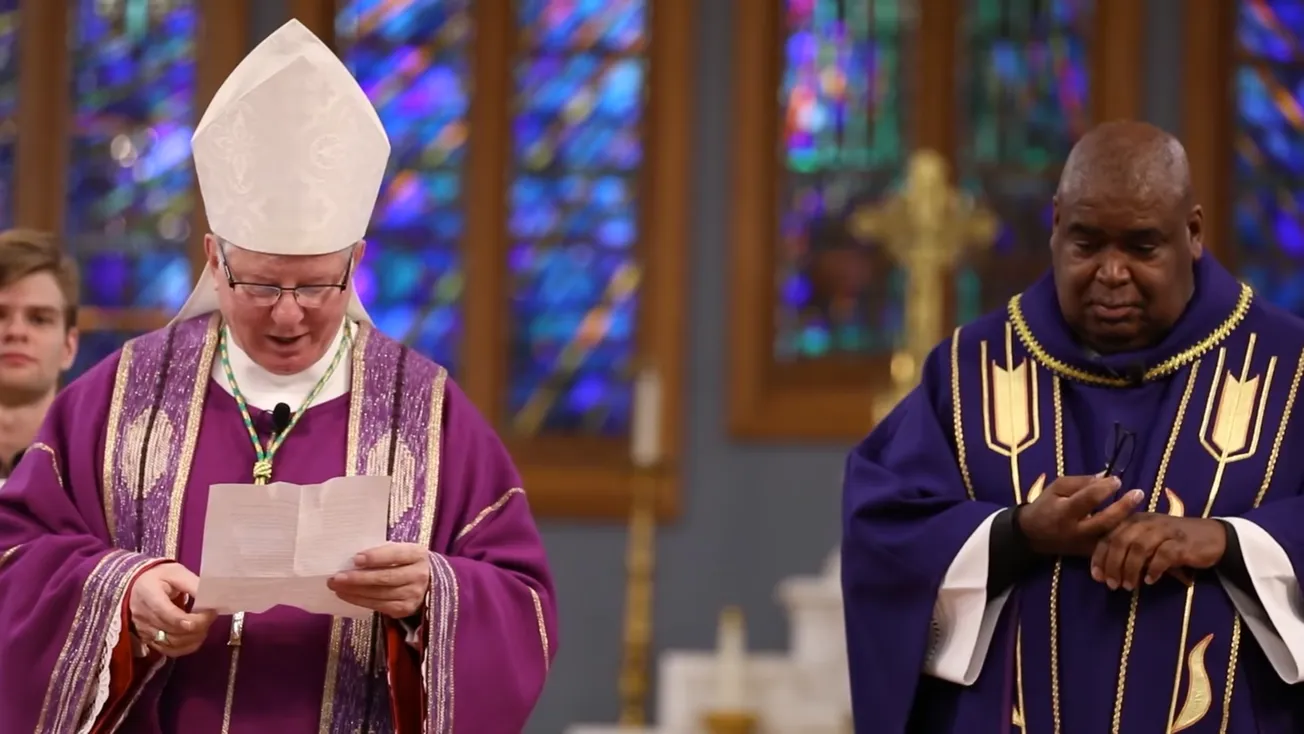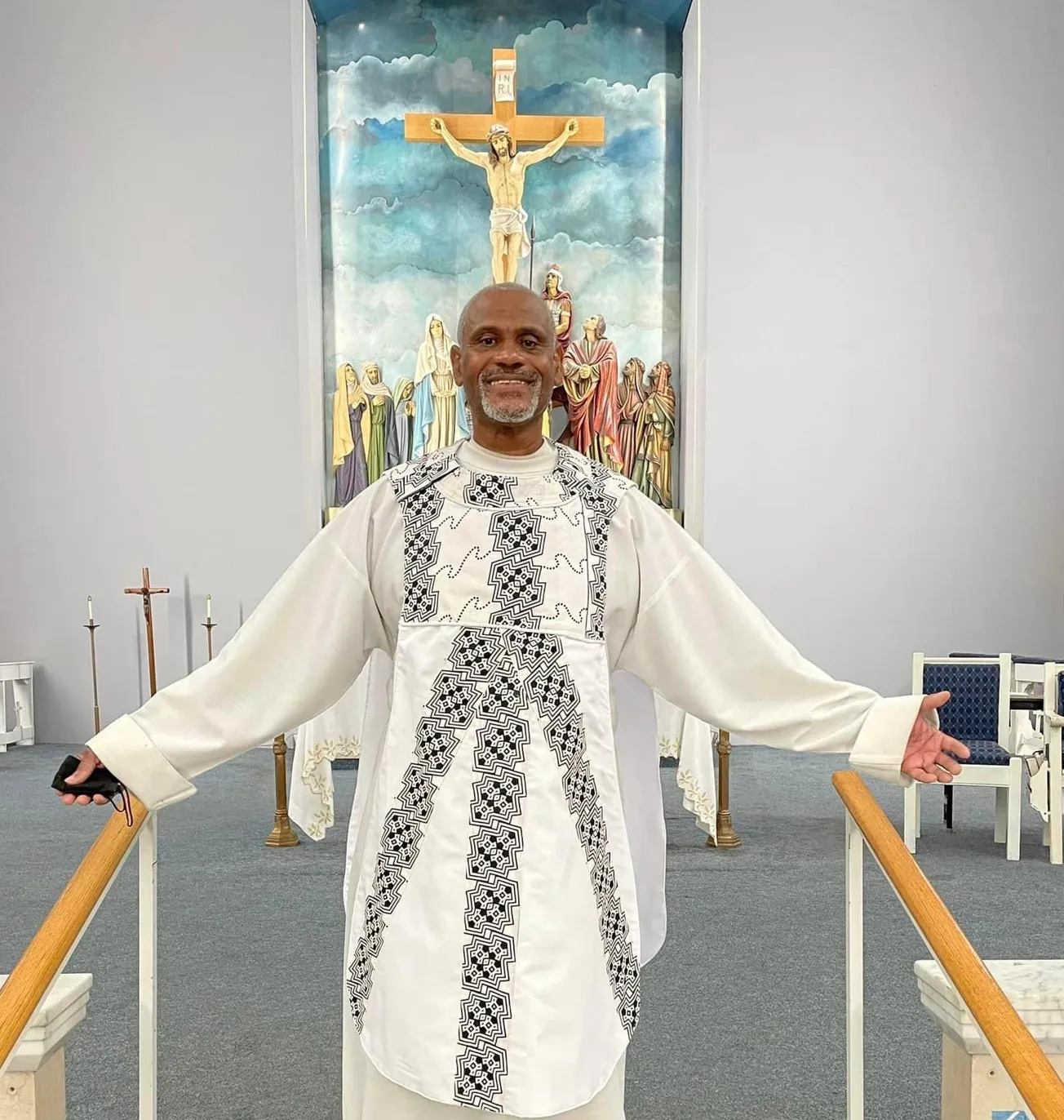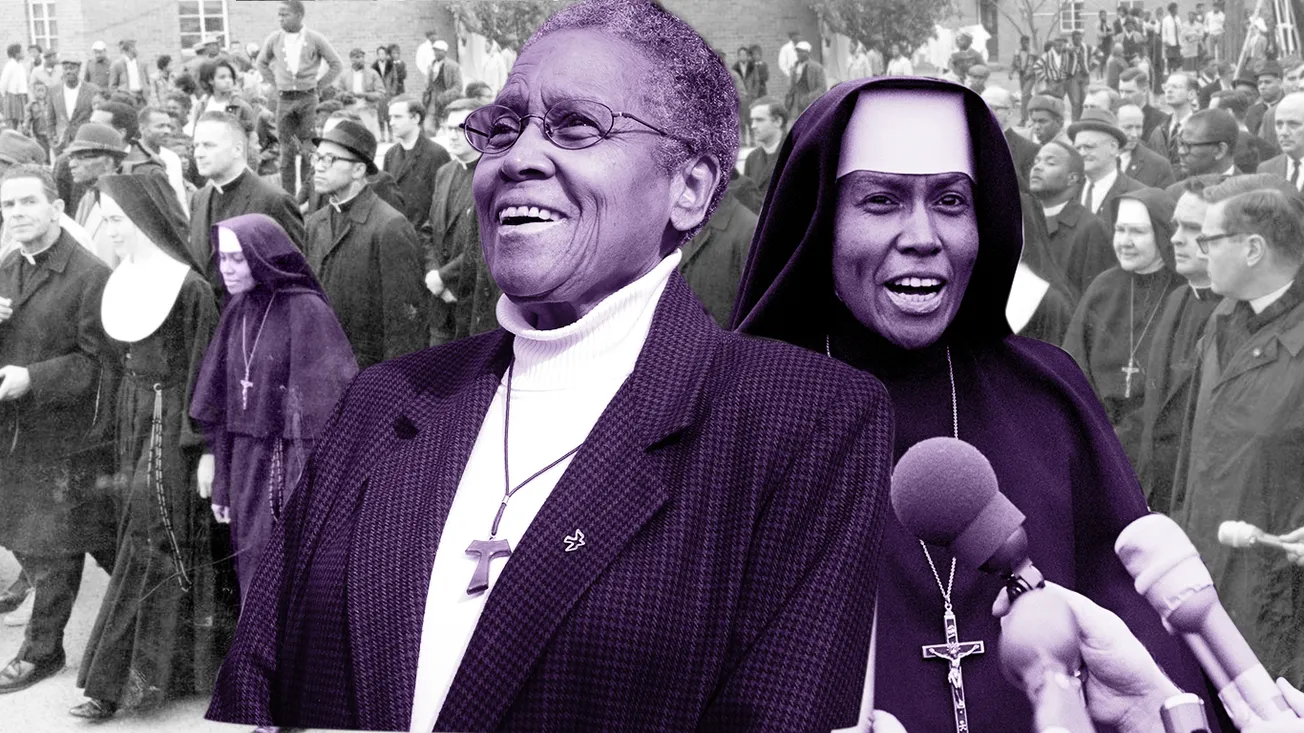For perhaps the first time in its history, the university operated by the nation’s Catholic bishops has introduced a public (and physical) representation of its sordid history with anti-Black racism.
More specifically, the Catholic University of America has installed a sign in the middle of campus describing the period when the university refused to admit Black students and, decades later, when two Black nuns reintegrated the university in 1933.

“The signs went up last week,” said Susan Gibbs, interim executive director of communications for the university.
She noted that the initiative is part of the “MLK Teach-In”, the university’s annual monthlong initiative highlighting African-American history, with events scheduled from mid-January through the midway point of Black History Month in February.
Gibbs also noted that the signs will only be displayed through the end of that month.
One outworking of the teach-in has been the university’s Civil Rights Walking Tour, which involves 13 sites on campus connected to Black history, including Mullen Library, where Black students organized sit-ins in 1970, and Thea Bowman Way, the street on campus named after the pioneering Black saint-to-be (and CUA alumna).
At least one other site on the tour also had a sign on campus last year, describing the Civil Rights activities on campus during the contentious Congressional battles on Black legislation during the mid 1960s.
The new sign, located near the university’s student center and cafeteria—one of the busiest intersections of campus—concerns the Catholic Sisters College, a former constituent institution of CUA that educated women in formation for various religious communities.
It would be the first at the university to receive Black students following Jim Crow, which in 1914 had occasioned CUA’s reversal of the interracial policy present at its founding in 1887.
The university’s recent Sister Thea Bowman Committee Report, which documents the state of racial relations and inclusion on campus, notes that as early as 1918, a White CUA professor had begun a campaign for integration, and his efforts were later bolstered in the 1920s by the Federated Colored Catholics, a Black activist group founded by Dr. Thomas Wyatt Turner.
Dr. Shannen Dee Williams, a history professor specializing in the history of African-American nuns, noted recently that in the 1930s, the Oblate Sisters of Providence—the nation’s first Black order of nuns, founded by Servant of God Mary Lange in 1829—also joined the calls for CUA to remove its racist policy.
Today is my Twitter birthday! In wake of @LoyolaMaryland's recent decision to name a hall after Sr./Dr. #TheaBowman, my wish is for Bowman's alma mater @CatholicUniv to consider honoring the legacies of the two Oblate Sisters of Providence (OSP) seen below in a similar way. pic.twitter.com/sHC8XsyPeZ
— Shannen Dee Williams, Ph.D. (@BlkNunHistorian) August 3, 2020
The late Srs Mary of Good Counsel Baptiste, OSP and Mary Consolata Gibson, OSP soon became the first Black students admitted to CUA in nearly 20 years, graduating a year later in 1934. They were also the university’s first Black female graduates.
The university fully removed its anti-Black admissions policy in 1936, under rector-bishop Joseph Corrigan.
For years, Williams has called for CUA officials to more fully honor the legacy of Baptiste and Gibson, but it is only in 2022—nearly 90 years after the sisters first enrolled—that any obvious recognition is being implemented.
In Baltimore, the location of the Oblate Sisters’ headquarters, a counseling center at their flagship Saint Frances Academy is named after Baptiste, who served there as principal for 25 years. She was also the Oblate superior general for more than a decade.
Gibson would also hold a number of teaching positions and serve as the principal of Baltimore’s former St Cecilia Catholic School beginning in 1961.

Correction: A previous version of this story indicated that the Civil Rights Walking Tour signs would be a permanent installation on campus. The signs are in fact temporary, and will apparently be erected each year during Black History Month.
Nate Tinner-Williams is co-founder and editor of Black Catholic Messenger, a seminarian with the Josephites, and a ThM student with the Institute for Black Catholic Studies at Xavier University of Louisiana (XULA).


